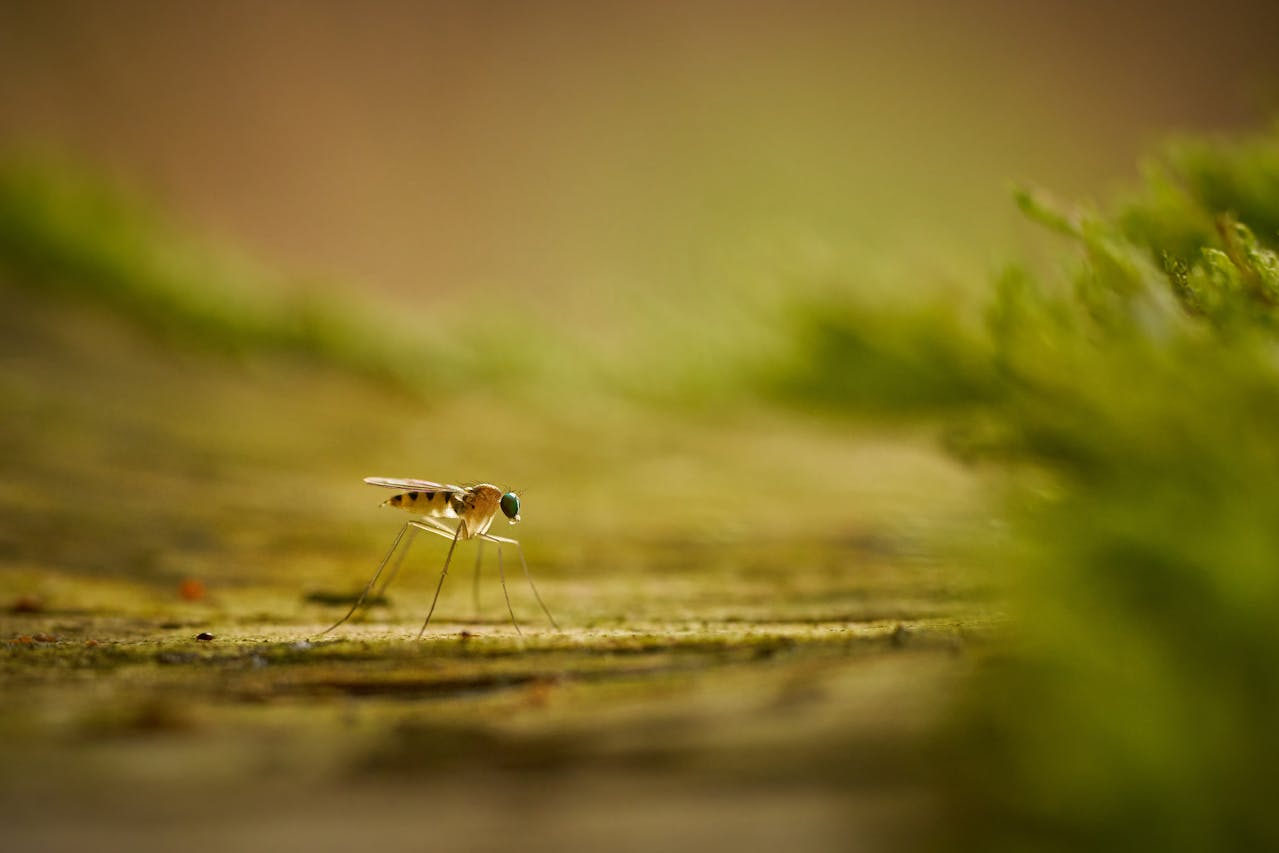Ah, the great outdoors! There's nothing like spending a warm evening in your yard, sipping on a cool drink and enjoying the company of friends and family. But then, the uninvited guests arrive: mosquitoes. These pesky insects can turn a relaxing evening into an itchy nightmare. Luckily, there are plenty of ways to reclaim your yard and keep mosquitoes at bay. Here’s a comprehensive guide to help you enjoy your outdoor space mosquito-free.
Understanding Mosquitoes: Know Your Enemy
Before diving into the strategies, it's important to understand a bit about mosquitoes. These insects are more than just a nuisance—they can carry diseases like West Nile virus, Zika virus, and dengue fever. Mosquitoes breed in standing water and are most active during dawn and dusk. Knowing this helps in targeting them effectively.
Eliminate Breeding Grounds
Mosquitoes need water to breed. Eliminating standing water around your yard is the first step in reducing their numbers.
-
Check for Standing Water: Inspect your yard regularly for places where water collects. This includes birdbaths, clogged gutters, flowerpot saucers, and even discarded toys.
-
Empty and Clean: Empty and clean these water sources at least once a week. For birdbaths, consider adding a small pump to keep the water moving.
-
Maintain Pools and Ponds: If you have a swimming pool, ensure it's properly maintained and chlorinated. For ponds, adding fish like goldfish or koi can help, as they eat mosquito larvae.
-
Proper Drainage: Ensure your yard has proper drainage to prevent puddles from forming after rain.
Yard Maintenance
A well-maintained yard is less attractive to mosquitoes.
-
Mow the Lawn: Keep your grass cut short. Mosquitoes like to rest in tall grass during the day.
-
Trim Bushes and Trees: Overgrown vegetation provides shade and resting places for mosquitoes. Trim back bushes and trees to reduce these hiding spots.
-
Remove Debris: Piles of leaves, grass clippings, and other yard waste can collect water and create breeding grounds.
Mosquito Repellent Plants
Certain plants are natural mosquito repellents. Incorporate these into your landscaping to help keep mosquitoes at bay.
-
Citronella: Known for its mosquito-repelling properties, citronella is a great addition to any yard. You can plant citronella grass or use potted citronella plants.
-
Lavender: Not only does lavender smell great, but it also repels mosquitoes. Plant it in sunny areas where it can thrive.
-
Marigolds: These bright flowers not only add color to your yard but also contain pyrethrum, a compound used in many insect repellents.
-
Basil: Plant basil near your seating areas or in pots on your patio. It’s a double win because you can use it in your cooking too.
Use Natural Predators
Nature has its own way of keeping mosquito populations in check.
-
Bats: Bats can eat thousands of mosquitoes in a single night. Consider installing a bat house in your yard to encourage these helpful creatures to take up residence.
-
Birds: Certain birds, like swallows and purple martins, are excellent mosquito predators. Attract them with birdhouses and feeders.
-
Dragonflies: Known as "mosquito hawks," dragonflies eat both adult mosquitoes and larvae. Planting native plants around water features can attract dragonflies to your yard.
Chemical and Natural Repellents
When natural methods aren’t enough, you can turn to repellents and insecticides.
-
DEET: Products containing DEET are very effective at repelling mosquitoes. Use it on your skin and clothing when spending time outdoors.
-
Picaridin: An alternative to DEET, picaridin is also effective and less likely to irritate the skin.
-
Permethrin: This insecticide can be applied to clothing, shoes, and outdoor gear. It’s long-lasting and effective at killing mosquitoes on contact.
-
Essential Oils: Oils like eucalyptus, lemon, and tea tree oil can be effective mosquito repellents. Mix a few drops with water in a spray bottle and apply it to your skin and outdoor furniture.
Mosquito Traps and Zappers
These devices can help reduce the mosquito population in your yard.
-
Mosquito Traps: These devices attract and capture mosquitoes. Some use CO2 to mimic human breath, while others use UV light. Place them around your yard, especially near areas where you spend the most time.
-
Bug Zappers: While they can be effective at killing mosquitoes, they also kill beneficial insects. Use them sparingly and away from seating areas.
Professional Pest Control
If you’ve tried everything and still have a mosquito problem, it might be time to call in the professionals.
-
Yard Sprays: Professional pest control services can treat your yard with insecticides that target mosquitoes. These treatments are usually effective for several weeks.
-
Mosquito Misting Systems: These systems automatically release a fine mist of insecticide at regular intervals. They can be installed around your yard and controlled with a timer or remote.
Mosquito-Proof Your Home
While this guide focuses on your yard, it’s also important to keep mosquitoes out of your home.
-
Screen Doors and Windows: Ensure all doors and windows have tight-fitting screens. Repair any holes or tears immediately.
-
Use Fans: Mosquitoes are weak fliers. Using fans on your porch or patio can help keep them away.
-
Insect Repellents Indoors: Use indoor-safe mosquito repellents, such as plug-in devices that release insecticide or essential oils.
Enjoy Your Mosquito-Free Yard
By following these tips, you can significantly reduce the mosquito population in your yard and enjoy your outdoor space without the constant buzzing and biting. Remember, the key is consistency. Regular maintenance and a combination of methods will give you the best results.
So, light up the grill, set up the lawn chairs, and get ready to enjoy your mosquito-free yard. Whether you're hosting a barbecue or just relaxing with a good book, you deserve to enjoy your outdoor space in peace.


